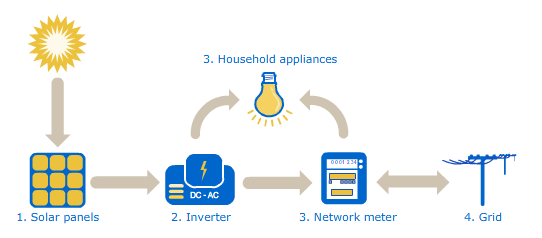
For as long as there has been innovation, we have looked to the brightest and biggest burning star in our galaxy for support. The most common modern-day application of the Sun’s resources comes in the form of solar energy.
Electricity is one of the most copiously consumed resources and solar energy is eternally abundant. Therefore, the conversion of sunlight into consumable electricity is an excellent renewable energy source. This process is facilitated entirely by the solar panel system. A solar energy generator is one of the most efficient and resourceful renewable energy sources currently available.
The main purpose of using a solar energy system is to create electricity through a reliable and inexhaustible source at various locations. This includes remote areas that participate in off-grid living or even homes and offices that choose the solar option in order to reduce their impact on the environment.
Solar generators are quite evidently a more conscious way to create energy since they eliminate the need to consume other limited resources like fossil fuels.
In order to further establish why the solar energy system is such a valuable set-up, we need to understand how solar panels work.
Here’s how a solar company’s generator or a private solar panel system works:
- A solar panel is a network of several individual solar cells that can convert light directly into electricity.
- Each solar cell is composed of layers of silicon which absorb the light from the sun and conductors that contain phosphorus that provides a negative charge, and boron that provides a positive charge.
- Together the cells in the solar panel system convert the sunlight that they receive into Direct Current (DC) electricity through a process called the Photovoltaic Effect.
- The DC electricity that is generated then flows into an inverter that converts it into Alternating Current (AC) electrical power.
- The AC electricity is the energy consumed by the electronic devices and appliances that are connected to the solar energy system.
- The electrical energy that is not consumed immediately can also be stored in the solar generator which allows it to be a steady source of electricity even in the absence of sunlight.
The networks that form these solar panel systems are often as sizable as the output of the electricity that is required. However, as new technologies and materials are being tested for solar energy generation, the output of solar panels will continue to increase. This means that more compact and more powerful solar energy systems are emerging all the time.
No comments:
Post a Comment